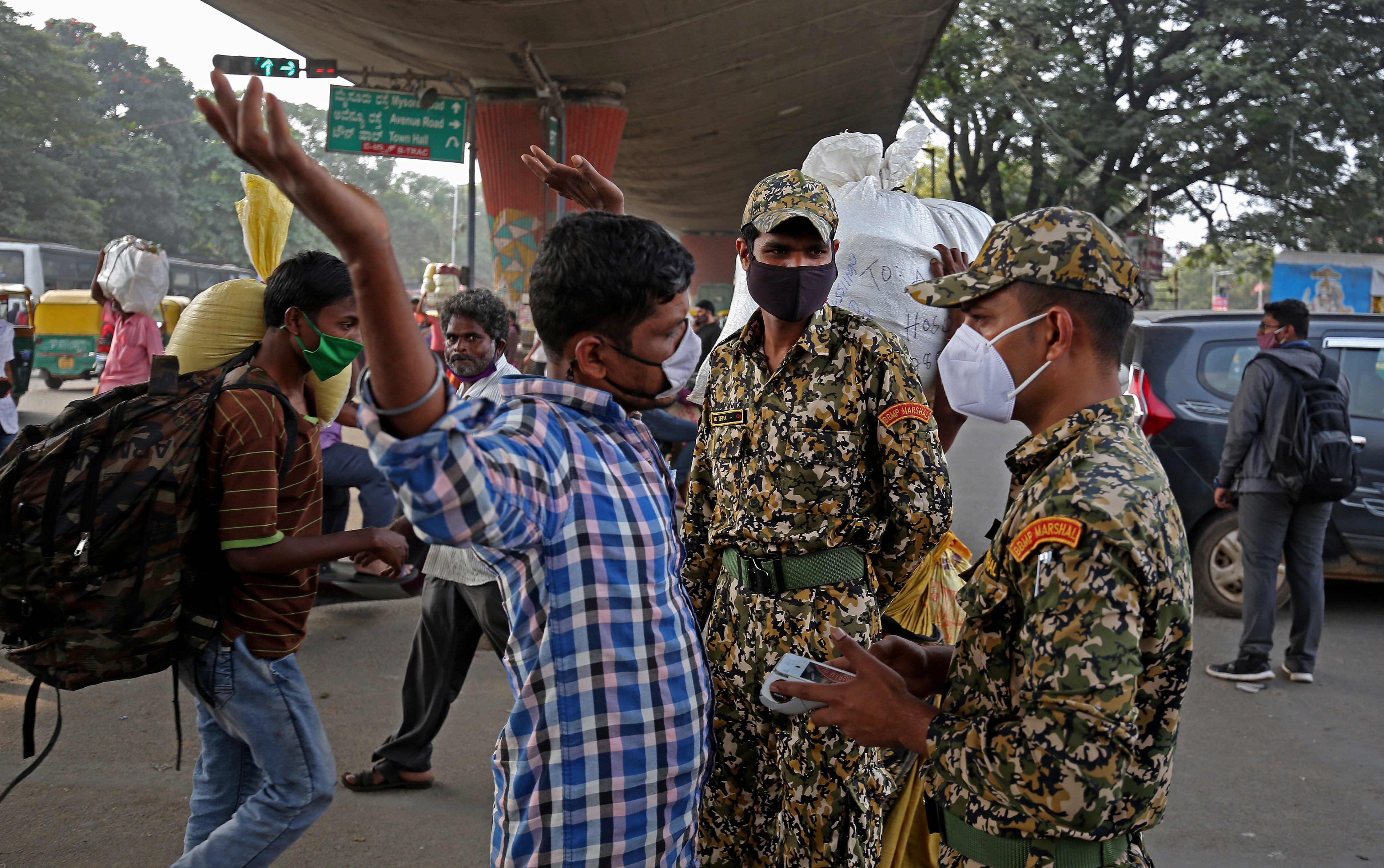Covid: Doctors warn of ‘massive’ third wave in India if omicron is allowed to spread
India’s largest medical association calls for immediate action to stem new cases, although experts say it is unlikely the country will ever witness scenes as bad as during May’s delta-driven second wave

Your support helps us to tell the story
From reproductive rights to climate change to Big Tech, The Independent is on the ground when the story is developing. Whether it's investigating the financials of Elon Musk's pro-Trump PAC or producing our latest documentary, 'The A Word', which shines a light on the American women fighting for reproductive rights, we know how important it is to parse out the facts from the messaging.
At such a critical moment in US history, we need reporters on the ground. Your donation allows us to keep sending journalists to speak to both sides of the story.
The Independent is trusted by Americans across the entire political spectrum. And unlike many other quality news outlets, we choose not to lock Americans out of our reporting and analysis with paywalls. We believe quality journalism should be available to everyone, paid for by those who can afford it.
Your support makes all the difference.Doctors in India have warned against complacency over the Covid threat and say there could yet be a “massive” third wave if the new omicron variant is allowed to spread unchecked.
The country’s largest doctor’s association, the Indian Medical Association (IMA), called on health officials to reassess pandemic preparedness across the country on Tuesday and called the detection of almost two-dozen omicron cases in India a “great setback”.
The IMA said it is evident that the new variant has high transmissibility, as it has rapidly spread to more than 40 countries since it was first identified in South Africa last month.
“At a time when India is limping back to normalcy, this is a great setback. If we do not take adequate measures, we may have a massive third wave,” the doctors’ body said.
It demanded the government provide booster doses for healthcare and frontline workers, as well as immunocompromised individuals.
IMA president JA Jayalal also urged the government to expedite a proposal for the vaccination of children and teenagers between 12 and 18 years and to complete the second dose of vaccinations for all. India has only just celebrated the landmark of double-vaccinating 50 per cent of its eligible adult population.
“So, if we can altruistically be focused on vaccination, India can definitely overcome the impact of omicron. IMA earnestly appeals to everyone concerned to take the vaccination as priority agenda and focus attention to reach all the unreached and also ensuring the second dose is given to all the needy,” Dr Jayalal said at a conference.
Fears of a potential third wave have been renewed after the rise in cases of infections linked to the omicron variant across the world and brought back haunting memories of the brutal second wave of the pandemic in the country in the beginning of this year.
India has detected 23 cases of the omicron variant as of Tuesday, after just two cases that were reported last week. The variant has been detected in some individuals who have no travel history, raising concerns of a potential community spread as a result of the heavily mutated variant.
The country’s overall case count, however, has dropped to about 10,000 new Covid cases daily on average and life has almost returned back to normal as people begin to crowd around public places.
Speaking to The Independent, epidemiologist Chandrakant Lahariya said that a “third wave is a reality” in India, irrespective of the omicron variant.
“There is every possibility of a third wave but no one can predict when that would be and with what number of cases. The majority of waves modelling exercises are based on some assumptions: whether there is a new variant or what is the level of Covid appropriate behaviour of people. However, that can be avoided by interventions and following Covid protocols,” Dr Lahariya said.
But he said India would “never go back to witnessing what it saw during the second wave” when single daily Covid infections peaked at around 400,000 and hospitals ran out of capacity, severely crippling the country’s public health infrastructure.
“India would never see that kind of rise in cases and rather, would be nowhere close to 400,000 infections because we are in an entirely changed scenario and context,” Dr Lahariya said.
He said this was because the susceptible pool of the population vulnerable to infections due to lack of antibodies was much lower now than before the second wave.
“Natural infection provides some protection to the people from subsequent infection. Now we know through studies such as sero-survey that there is a wider proportion of people who have developed antibodies either due to natural infection or vaccines,” the epidemiologist said.
“About 80 per cent of the population was susceptible to infection before the second wave, but that has reduced to about 10-15 per cent,” he added.
Even in the worst-case scenario, the number of hospitalisations would be very low, he pointed out.
The new variant, first flagged by experts in South Africa, was classified as a “variant of concern” by the World Health Organisation after about 50 mutations, including 32 in its spike protein, were detected.
Taking into account that it is still being determined how deadly omicron is, Dr Lahariya said its impact could be less in India and cautioned that one must not forget that the country is still reporting roughly 10,000 cases of the lethal delta variant.
“We should use this time and prior experience to reassess pandemic preparedness and focus on accelerated genomic sequencing and surveillance,” he concluded.




Join our commenting forum
Join thought-provoking conversations, follow other Independent readers and see their replies
Comments